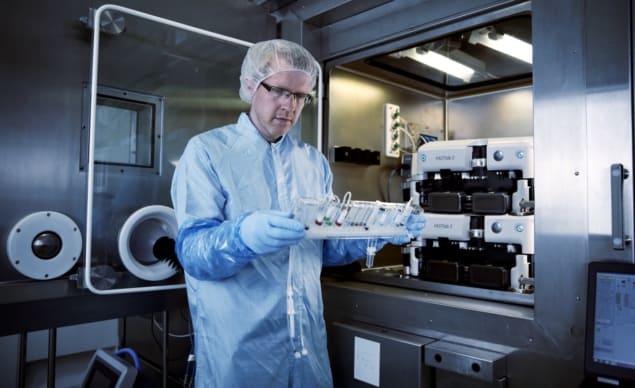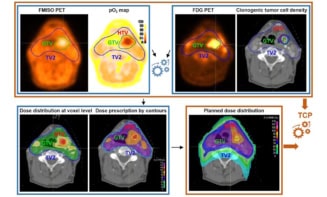
GE Healthcare and Vanderbilt University Medical Center (VUMC) have announced a five-year partnership to enable safer and more precise cancer immunotherapies. They plan to develop diagnostic tools to help predict the efficacy of an immunotherapy treatment and its adverse effects for a specific patient — before the therapy is administered. This ability would help physicians target immunotherapies to the right patients and avoid potentially damaging, ineffective and costly courses of treatments.
Immunotherapies use the immune system to recognize and attack cancer cells. While they can prove highly effective in some cases, response rates are often low and side effects can be severe. GE and VUMC will retrospectively analyse and correlate the immunotherapy response of thousands of VUMC cancer patients with their anonymized demographic, genomic, tumour, cellular, proteomic and imaging data. The partners will then develop artificial intelligence (AI)-powered applications that use this data to help physicians identify the most suitable treatment for each individual patient.
The partners also plan to develop new PET tracers, which together with the apps, will help physicians identify appropriate patients for immunotherapy clinical trials, reducing unnecessary and expensive trial failures and speeding up approvals of new therapies. They hope that the PET tracers will ultimately also be used to monitor the efficacy of immunotherapies in everyday practice.
“Immunotherapy offers tremendous promise but given the current unpredictability of some patients’ reactions to treatments, it is also associated with increased morbidity and cost,” says Jeff Balser, president and CEO of VUMC and Dean of the Vanderbilt University School of Medicine. “This partnership provides the opportunity to leverage strengths of both of our organizations to further personalize cancer care by creating new tools that allow clinicians to more accurately predict how patients will respond to a specific therapy,”
“GE Healthcare and Vanderbilt will combine their data science, genomic, imaging and cellular analysis capabilities to help improve clinical decision making,” adds Kieran Murphy, president and CEO of GE Healthcare. “This partnership is a great example of the increasing convergence of the tools, technologies and data used by therapy innovators and healthcare providers.”
According to GE Healthcare, the first analytics application prototype will be available by the end of 2019 and the PET tracer proof-of-concept by the end of 2020.



